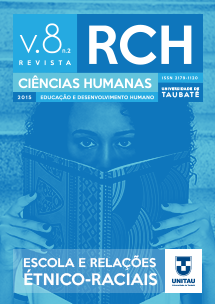A TELEVISÃO ABERTA NO BRASIL: CONCENTRAÇÃO E AUSÊNCIA DE POLÍTICAS DE COMUNICAÇÃO
Palavras-chave:
Políticas de comunicação, Televisão aberta.Resumo
Criada há mais de 60 anos, a televisão aberta está presente hoje na maioria dos lares brasileiros. Ao longo dos anos, a radiodifusão se consolidou com a predominância do sistema comercial e com a concentração da propriedade dos meios em poucos grupos midiáticos. A legislação do setor é antiga e a sociedade civil organizada exige um novo marco regulatório para a área. Com a Constituição Federal de 1988, um capítulo foi dedicado à Comunicação e estabeleceu que a radiodifusão deve ter finalidades culturais e educativas, valorizar a produção regional e independente e se basear na complementaridade dos sistemas público, privado e estatal. A partir de pesquisa bibliográfica, o presente artigo tem como objetivo examinar a TV aberta brasileira considerando o processo de criação e expansão do veículo; o quadro normativo que rege o setor; a ausência de políticas no campo de comunicação e os debates atuais envolvendo a abertura para novos atores sociais. Os apontamentos mostram que, além da necessidade de atualizar a legislação, faltam intervenções dos poderes públicos para garantir maior participação social e acompanhamento do serviço prestado pelas emissoras de TV.
Métricas
Downloads
Publicado
Como Citar
Edição
Seção
Licença
As publicações da Revista Ciências Humanas estão registradas sob a licença Creative Commons Attribution CC-BY.
1. Os conteúdos dos trabalhos são de exclusiva responsabilidade de seu autor.
2. É permitida a reprodução total ou parcial dos trabalhos publicados na Revista, desde que citada a fonte.
3. Ao submeterem seus trabalhos à Revista os autores certificam que os mesmos são de autoria própria e inéditos (não publicados em qualquer meio digital ou impresso).
4. Os direitos autorais dos artigos publicados na Revista são do autor, com direitos de primeira publicação reservados para este periódico.
5. Para fins de divulgação, a Revista poderá replicar os trabalhos publicados nesta revista em outros meios de comunicação como, por exemplo, redes sociais (Facebook, Academia.Edu, etc).
6. A Revista é de acesso público, portanto, os autores que submetem trabalhos concordam que os mesmos são de uso gratuito.
7. Constatando qualquer ilegalidade, fraude, ou outra atitude que coloque em dúvida a lisura da publicação, em especial a prática de plágio, o trabalho estará automaticamente rejeitado.
8. Caso o trabalho já tenha sido publicado, será imediatamente retirado da base da revista, sendo proibida sua posterior citação vinculada a ela e, no número seguinte em que ocorreu a publicação, será comunicado o cancelamento da referida publicação. Em caso de deflagração do procedimento para a retratação do trabalho, os autores serão previamente informados, sendo-lhe garantido o direito à ampla defesa.
9. Os dados pessoais fornecidos pelos autores serão utilizados exclusivamente para os serviços prestados por essa publicação, não sendo disponibilizados para outras finalidades ou a terceiros.





